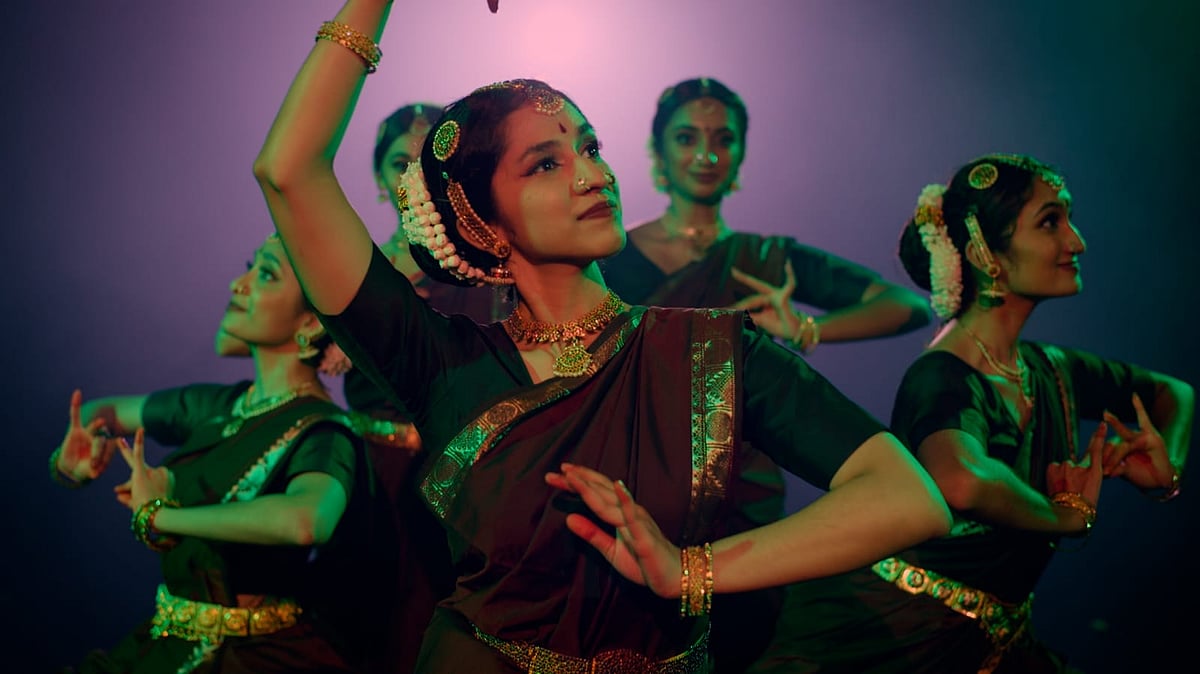Blackpink meets Bharatanatyam: How two brothers brought Jennie into the world of classical dance
The two Singapore-based brothers did not want to rely on influencers for this dance

In today’s world of dub-smashes and viral trends, you’ve likely come across clips of BTS ‘dancing’ to Chunnari Chunnari — more times than you can count. And some, more where BTS, Blackpink are supposedly dancing to traditional Hindi songs. The classic refrain: ‘Oh, the beat matches!”
It does, indeed. You scroll past.
But then, a different kind of fusion catches your eye, a brief teaser where Bharatanatyam dancers perform to Blackpink Jennie’s solo track Jennie with such astonishing synchronicity, you do a double take. They’re in traditional attire, but they aren't mimicking K-pop moves. Instead, they’ve reimagined the song through classical movement — respecting, not replicating, two very different worlds.
Blackpink meets classical
And after speaking to Suresh Subash from Singapore, who conceptualised and directed it, with his brother Vasanthakumar Anbalagan, you realise the fusion of two worlds.
Subash, who co-founded NightSky Creatives with his brother Vasanthakumar Anbalagan, explains the vision behind it: 'It’s our space to showcase creative output.” And this new creation, isn’t a random mashup or trend that they just wanted to do: It came from a simple idea: What happens when two worlds that rarely meet collide? “The classical and the pop. The poised and the playful. The traditional and the unapologetic,” he says.
Two different feminine energies in one frame
And the way he sees Blackpink’s Jennie, is as a woman of strong charisma. It’s true: Blackpink fans would know the bold, powerful energy she exudes, from her unabashed interviews to taking on the stage with a rare fire and storm. As Subash explains, “it’s the kind of modern feminine energy that is confident, stylish, and unafraid.”
And then there’s one of the Indian celestial nymphs, whom Subash views as more than a mythical figure. “They are equally powerful and divine, for their mastery of beauty, grace, dance, and music,” he says.
So what happens when these two feminine energies, fierce and flowing, modern and mythic, share the same frame?
Both the brothers were curious to see what would happen when these two energies were placed in the same frame. “Fused through rhythm, movement, and energy. It’s not really about remixing culture. It’s about revealing how timeless feminine power can take many and any forms,” Subash says.
Rather than working with influencers, the brothers deliberately sought newer, aspiring dancers — keeping the project rooted in fresh, original energy.
What’s more fascinating, was how it all came together: After finding the different girls for the dance, he explains the concept to them. And the girls, with their dancing prowess, improvised and looked at different variations with both the brothers and devised on what looks best. And so, even in the brief teaser, you can see the synchronised intensity, where K-Pop meets classical dance, honouring both.
Is he afraid of criticism, given it’s a traditional classic dance? Subash isn’t. He takes a practical approach: “It goes for any artist, where the art is personal for both the viewer and the artist. It might not always land with people.” Yet, what matters, is how they feel.
And when they look back at such a distinct fusion, no doubt, there’s pride.
Network Links
GN StoreDownload our app
© Al Nisr Publishing LLC 2026. All rights reserved.